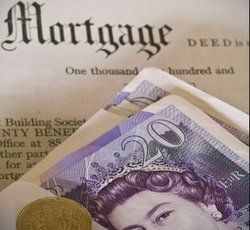The Bank of England will soon have the power to cap mortgages, i.e. to place limits on how much loan applicants can borrow to buy a house. Britain’s central bank accepted the new powers which were suggested by George Osborne, the Chancellor of the Exchequer.
The Bank of England (BoE) will set a loan-to-income ratio limit, as well as capping debt-to-income ratios, including interest coverage ratios in respect to buy-to-let lending.
The BoE wants to make sure that landlords are receiving more in rent than what they are paying out on their monthly mortgage repayments.
While the BoE’s Financial Policy Committee (FPC) can currently make recommendations regarding loan-to-income ratios, it does not have the authority to enforce them. By the middle of next year, it will have the power.
One fifth of UK borrowers say they are not prepared for a rise in interest rates.
Limit loans to 4.5 times income
In the summer, the FPC advised lenders to limit larger loans, including mortgages, to no more than 4.5 times annual income.
The central bank also said it backs the government’s flagship mortgage guarantee scheme ‘Help to Buy’.
Today the FPC revealed the substance of its meeting last month. It noted that geopolitical and event risks appear to be more marked now than they were in June. It added that markets had been surprisingly resilient to the risks in the financial system.
Although it believes the housing market in the UK is stable, the FPC says it is watching it closely. The majority of the 46 systemic banking crises followed housing boom-bust cycles, it said.
Regarding fees charged by lenders to access Help-to-Buy, the FPC said “The committee does not see a case for changing the fee or the house price cap on financial stability grounds at this point.”
What is the Help-to-Buy scheme?
The Help-to-Buy scheme is an equity loan for first-time buyers and home movers on new-built homes in England. It only applies to dwellings priced at up to £600,000. The home buyer on this scheme will not be allowed to sublet his or her home. It must be the individual’s only property.
With a Help-to-Buy loan:
- The borrower must contribute 5% or more of the property price as a deposit.
- The government will provide a loan of up to 20% of the price.
- The buyer will need a mortgage of up to 75% to cover the rest.
During the first five years there will be no loan fees. In the sixth year, the borrower will be charged a fee of 1.75% of the value of the loan. The fees subsequently rise each year, (retail price index plus 1%).
The loan is paid back after 25 years or when the house is sold, whichever is earliest. Part or all of the loan can be paid back at any time.
Mr. Osborne said he was pleased to hear that the FPC does not believe the Help-to-Buy scheme poses a material risk to the UK’s financial stability, and does not think it has caused the recent rise in house prices.
UK house prices fell in September for the first time in 17 months, according to data released by Nationwide Building Society on Tuesday.

